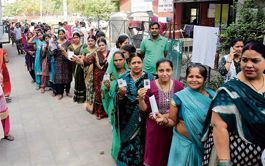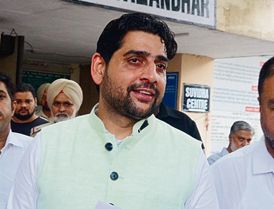
“We have obtained a model that predicts with good accuracy what is now, and used this model to predict what will happen in 2050,” said research engineer Valery Shevchenko at Skolkovo Institute of Science and Technology in Russia. iStock
New Delhi, February 21
Scientists have used Artificial Intelligence (AI) to analyse how agricultural land suitability can change in 25 years, and found that the number of croplands would increase in the northern regions.
The study, published in the journal IEEE Access, predicted cropland distribution based on various climate models and shared socioeconomic pathways scenarios. It focused on the regions of Eastern Europe and Northern Asia.
By 2050, scientists predict that global demand for food would increase by 110 per cent, while today about 40 per cent of croplands and pastures are under threat due to the increasing average temperature on the planet, high concentrations of greenhouse gases in the atmosphere, and many other factors.
The latest study found that in 25 years the amount of arable land would increase, but it would shift to the north, and some currently exploited agricultural regions may require increased irrigation.
The research included three stages: collecting and preprocessing data, training a machine learning model, and evaluating results by predicting cropland distribution based on various climate models and shared socioeconomic pathways scenarios.
Machine learning is a type of AI that helps computers learn and improve from data analysis without explicit programming.
The researchers obtained three data sets and analysed them for three different climate change scenarios: a sustainable, low-emission green energy future, a ‘business-as-usual’ trajectory with moderate emissions, and a high fossil fuel dependency scenario with significantly increased greenhouse gas emissions.
“We have obtained a model that predicts with good accuracy what is now, and used this model to predict what will happen in 2050,” said research engineer Valery Shevchenko at Skolkovo Institute of Science and Technology in Russia.
“We cannot say that this will be 100 per cent the case, because it is important to take into account many parameters here—for example, the type of land and soil erosion,” Shevchenko added.
The researchers emphasise that their findings align with and complement recommendations from the Intergovernmental Panel on Climate Change, which highlight the importance of detailed regional assessments for adapting to climate variability and ensuring food supplies.
Join Whatsapp Channel of The Tribune for latest updates.



























